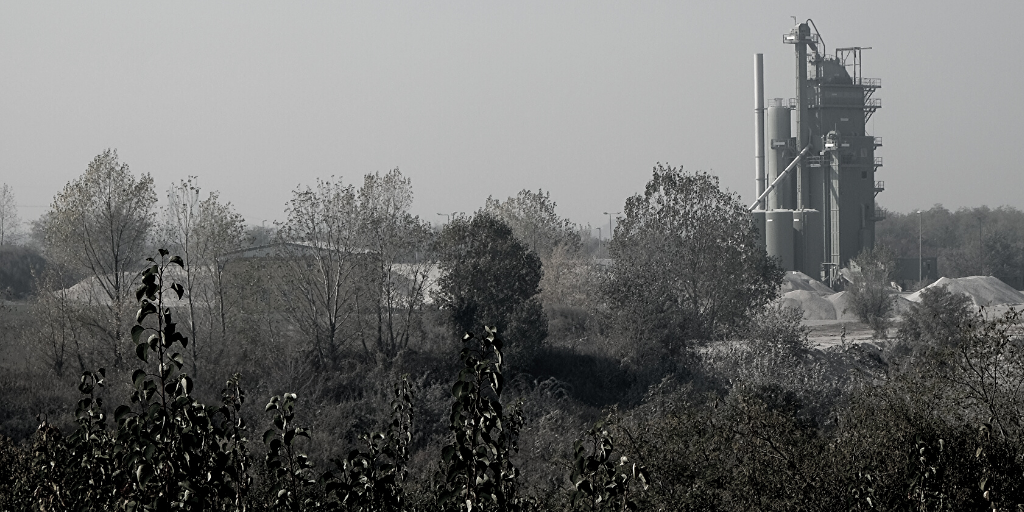New analysis: Belgrade incinerator public-private partnership a textbook case of corporate capture
The Belgrade solid waste public-private partnership (PPP) has been plagued by legal irregularities and circumvented binding decision-making processes, finds a new analysis published today by CEE Bankwatch Network, Counter Balance and Zero Waste Europe.
4 December 2019

The analysis is available here.
In September 2017, the City of Belgrade signed a 25-year PPP for the provision of municipal waste treatment and disposal services with a consortium including France’s Suez and Japan’s Itochu, for the construction of a 340 000 tonnes per year municipal waste incinerator.
But the city and the International Finance Corporation, its lead transaction advisor, bypassed Belgrade’s official waste management plan and urban plans (2) and selected a project company without requiring any municipal waste separation, recycling or pre-treatment to be part of the project – a move likely to bring Serbia into conflict with EU waste targets.
The PPP also relies on an outdated subsidies model that is now illegal under EU rules and was approved in breach of Serbian law. (3) EU legislation allows only biodegradable waste to be classified as a renewable resource, not fossil-based waste such as plastic. And new feed-in tariffs are no longer allowed for larger facilities.
The PPP is highly likely to prevent Belgrade contributing to Serbia meeting recycling targets set by EU legislation. This is due to competition for waste materials and financial resources, which is expected to discourage the development of waste prevention, composting and recycling systems. According to Eurostat, in 2017 Serbia recycled only 0.3 percent of municipal solid waste. (4)
Financing has been approved by the IFC, European Bank for Reconstruction and Development (EBRD) and Austrian Development Bank (OeEB), but the European Investment Bank pulled out of the deal, citing clashes with EU waste policies. (5)
Ksenija Radovanović, an architect/urban planner and author of the analysis, said, “This is a textbook case of corporate capture of public policy-making, and is exactly the opposite of what international donors should be supporting in Serbia. The project was designed according to the wishes of the potential private partners, and of course the bidders chose what was easiest and most profitable for them: incineration.”
Pippa Gallop of CEE Bankwatch Network said, “International donors need to help Serbia apply the rule of law and work towards a future-proof circular economy. Instead the EBRD, IFC and OeEB’s promotion of the private sector resulted in them turning a blind eye to legal irregularities and keeping Belgrade stuck in the twentieth century.
That the EIB refrained from backing the project while others went ahead shows a serious lack of donor coordination and puts the onus on the EBRD, IFC and OeBB to withdraw from the project while they still can,” she added.
Janek Vahk of Zero Waste Europe, said, “This project is completely at odds with the EU’s resource legislation. Incineration and energy recovery from waste are the two least desirable options for materials at the end of life in a circular economy. The most cost-effective way to move away from landfills and increase recycling is by focusing primarily on separate collection and recycling, rather than investing in waste-to-energy.”
Contacts
Ksenija Radovanović, report author
E-mail: radovanovic.ksenija AT gmail.com
Tel: +381 669655293
Pippa Gallop, CEE Bankwatch Network
E-mail: pippa.gallop AT bankwatch.org
Tel: +385 997559787
Skype: pippa.gallop
Janek Vahk, Zero Waste Europe
E-mail: janek AT zerowasteeurope.eu
Tel: +32 (0) 49 3553779
Notes for editors
- Directive 2008/98/EC on waste sets a 50% target by 2020 of preparing for re-use and recycling of municipal waste, while Directive (EU) 2018/851 amending Directive 2008/98/EC sets targets of 55% by 2025, 60% by 2030 and 65% by 2035. Even with a potential delay of 5-10 years, depending on Serbia’s accession negotiations, the analysis finds that the amount of waste required for the incinerator is likely to prevent Belgrade from contributing to the meeting the country’s recycling targets.
- Building a facility for direct incineration of municipal waste was not in line with the Local Waste Management Plan of the City of Belgrade 2011-2020 or the Detailed Regulation Plan for the Vinča Sanitary Landfill, City Municipality of Grocka. While the solution foreseen by these documents, the pre-treatment of waste to form refuse-derived fuel before incineration, is also not one we would support, at least these documents were adopted via the legally-defined process, and the Local Waste Management Plan at least foresees 20% recycling by 2020. After the signing of the PPP Agreement, the contracted technological solution was semi-legalised by changing the Detailed Regulation Plan for the Vinča Landfill (DRP) in September 2018, however the higher order spatial plans and waste management plan remain unchanged.
- For more information see the new analysis and also here.
- Eurostat
- For more information see here
Never miss an update
We expose the risks of international public finance and bring critical updates from the ground – straight to your inbox.
Institution: EBRD | EIB | IFC
Project: Belgrade incinerator PPP
